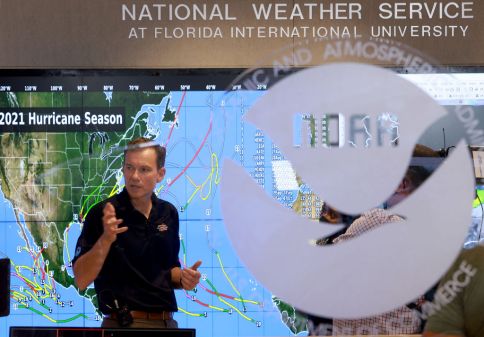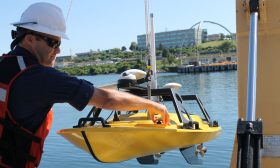NOAA improving unmanned maritime systems development through 10-year partnership

The National Oceanic and Atmospheric Administration plans to improve unmanned maritime systems research, assessment and acquisition through a partnership with the Scripps Institution of Oceanography announced Wednesday.
First the Office of Marine and Aviation Operations will establish the structure, staffing and training for its recently created Unmanned Systems (UxS) Operations Program based on recommendations from the institution at the University of California, San Diego.
The Coastal Observing Research and Development Center at Scripps will also design and test an unmanned surface vessel outfitted with a payload for collecting meteorological and oceanographic data in an initial project.
“Innovative use of unmanned systems will benefit many NOAA programs, augmenting data collection often at lower cost, increased safety and reduced risk — especially in remote or extreme environments,” said retired Navy Rear Adm. Tim Gallaudet, deputy NOAA administrator, in the announcement.
The 10-year agreement between OMAO and Scripps allows them to collaborate on specific UxS projects and move the technologies into operational platforms for environmental data gathering, said Rear Adm. Michael Silah, who directs the office.
NOAA‘s UxS operation will be based out of a new facility in Gulfport, Mississippi.
The Commercial Engagement Through Ocean Technology Act of 2018 requires NOAA UxS research and development with the Navy, other federal agencies, industry and academia. NOAA received $12.7 million in fiscal 2020 from Congress to create the UxS Operations Program, part of its UxS Strategy document.
“Innovative new technology to observe the ocean and to gather data is essential to understand and predict the ocean,” said Margaret Leinen, director of the Scripps Institution of Oceanography, in a statement. “Unmanned systems allow us to observe the ocean more regularly and at greater scale.




